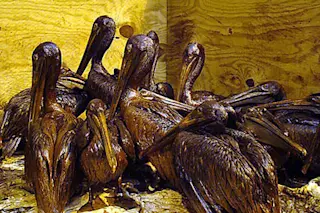People have now recovered nearly 500 oiled-but-alive birds from the Gulf region. Many of these are the brown pelicans, which—adding insult to tragedy—is Louisiana's state bird. They have become grimy symbols of BP's catastrophe, and responders are racing to save the birds and clean them. But increasingly, the disheartening but necessary question has arisen: Should we euthanize them instead of trying to save them? YES Ron Kendall, director of the Institute of Environmental and Human Health at Texas Tech University, told the AP that it might be hard to stomach the thought, but trying to save the brown pelicans and other oily birds could be futile. To help the birds, responders must capture them, hold them in captivity, go through the exhaustive process of cleaning them, and set them free somewhere where they won't fly back to the oil. In the case of BP's leak, oil has spread so far ...
Should We Just Euthanize the Gulf's Oil-Soaked Birds?
Discover the ongoing oiled birds rescue efforts in the Gulf, tackling the issues of euthanizing oiled birds and their long-term survival.
More on Discover
Stay Curious
SubscribeTo The Magazine
Save up to 40% off the cover price when you subscribe to Discover magazine.
Subscribe













